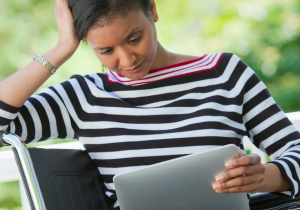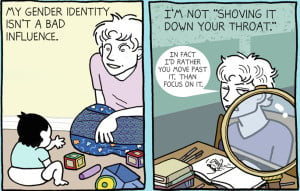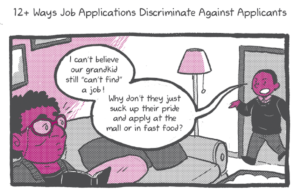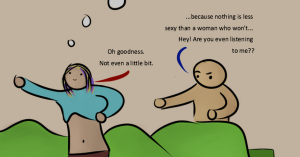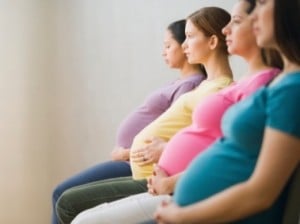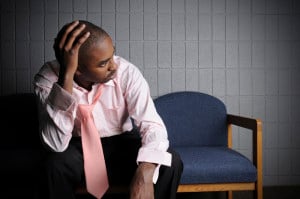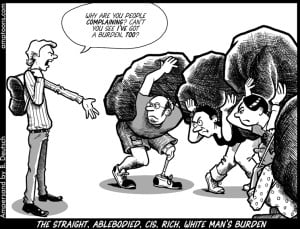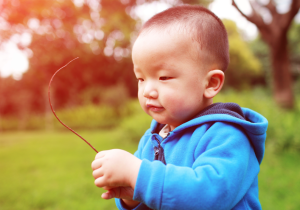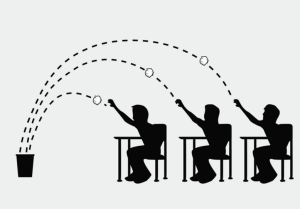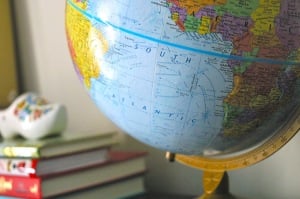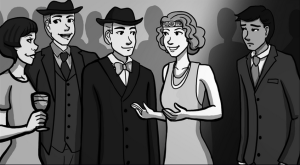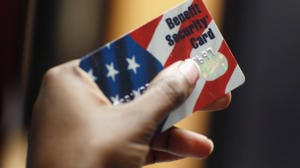People often struggle with the concept of privilege.
And that’s understandable because, in essence, privilege means not having to think about privilege. And this can lead to trouble when those who are oppressed try to explain privilege and oppression: how do we start a conversation about something that isn’t even on someone’s radar?
Privilege checklists – which provide examples of privileges in an attempt to show you how you’ve been advantaged by society in ways you haven’t even considered – are a great introduction to the realities of privilege, especially for those who have never pondered the issue before.
They provide concrete examples of how privilege (and marginalization) affects our everyday lives. And as such, privilege checklists can sometimes be more helpful than trying to explain an -ism (whether it be racism, sexism, ableism, or another) on our own.
But while privilege checklists are a great “first look,” they fail to go deeper – and sometimes that can get in the way. For example, most privilege checklists fail to acknowledge intersectional oppressions, where two or more marginalized identities interact.
In particular, I’ve noticed that privilege checklists often fail to consider how disability impacts identities, and how disabled people who are marginalized in other ways (along the axes of race, gender, and so on) have a different experience of those marginalized identities due to ableism.
To give you an idea of what I mean by that, I looked at Buzzfeed’s “How Privileged Are You?” checklist for examples of how privilege checklists in general often fail to acknowledge the realities of dis/ability.
1. ‘I Have Never Been Catcalled’
Male privilege means that men can go out in public without being bombarded with derogatory sexual comments. This way in which women and other gender and sexual minorities are objectified and reduced to the sex appeal of their bodies is an example of rape culture.
However, when I saw this one, I paused.
Yes, it’s true that I’ve never been catcalled – but in my case, that’s not evidence of male privilege. I am most definitely a woman and present femininely.
Rather, I’ve never been catcalled because I am visibly disabled – so my body isn’t seen as sexually attractive.
My body evokes pity, rather than desire. I’m objectified and defined by my body, like people who are catcalled, but in a different way. My body (and extensions of my body, like my wheelchair) is touched and handled without my permission, not because I’m seen as a sexual commodity, but because I am seen as perpetually in need of “help” and salvation from able-bodied people.
So, the fact that I have never been catcalled is not so much evidence of privilege in one area, but evidence of disprivilege in another.
2. ‘I Have Never Done My Taxes Myself’
People who are class privileged can often pay someone else (or pay for software) to do their taxes for them. However, the fact that I’ve never done my taxes myself is not necessarily evidence of class privilege.
I’ve never done my taxes myself because I’ve never done my taxes. I’ve never made enough money to be taxed because I have never had a job that pays a steady wage.
This also ties into ability privilege and ableism, because disability is the main reason why I’ve never had a steady job. Disabled people as a whole have abysmally low employment, and disabled women even more so.
Unfortunately, disabled people who are class privileged are usually an exception, not a rule. It becomes even more complex when other identities, like race, are introduced into the mix.
I am not class privileged because I’ve never done my taxes myself. I am class disprivileged because I have never done my taxes at all.
3. ‘I Have Never Felt Poor’
This statement is problematic in and of itself because it’s incredibly subjective. That is, a lot of people “feel poor” in their lives. But that doesn’t necessarily mean that they’re not class privileged.
As a woman, I am likely to be paid less than a man, but I still am likely to get paid more than most women of color. As a disabled person, it is unlikely that I’ll be employed at all, yet disabled men are still more likely to be employed than disabled women.
The unemployment rate is more than doubled for people with disabilities versus people without disabilities. And many disabled workers get paid just pennies because of federal exemption to minimum wage laws.
Many disabled people are trapped in a cycle of poverty because of the way disability benefits like SSI and SSDI work.
SSI and SSDI are tied to Medicaid, which provides many disabled people with necessary personal assistant services. If you have over a certain amount of assets (including savings in bank accounts or cash, and valuables such as a car or house), your benefits get slashed and could eventually be cut altogether, leaving disabled people without personal assistants.
Because of this vicious cycle, even disabled people who could work with the reasonable accommodations more often than not are forced into unemployment in order to keep the services that very literally keep them alive.
The poverty cycle even influences who we marry. If a person on benefits marries someone who is not on benefits, they are considered dependent on their spouse and their benefits are cut, because the spouse’s income is taken into account.
If a person on benefits marries another person on benefits, their incomes will be taken together. Both people will have their benefits slashed if their combined income exceeds the resource limit. This is often referred to as the “marriage penalty.”
So classism is unfortunately closely related to ableism, and “feeling poor” is an unfortunate reality for a lot of disabled people.
Feeling poor and class privilege can also depend on the environment and location you’re in. As a child and teen, I felt poor many times, even though my family was solidly middle class, because we didn’t have as much money as some of my friends’ families.
Even though we weren’t privileged in relation to other people in our area, we were still privileged. We had enough money for food, clothes, rent, and two cars. Our basic necessities were always provided for. That’s a sign of privilege, even though it may not have felt like it at the time.
4. ‘I’ve Never Worked As a Server, Barista, Bartender, or Salesperson’
This is, again, a reference to class privilege.
The jobs mentioned generally pay very little (servers, in particular, mostly depend on tips) and employees must work long hours in order to make enough money to make ends meet. These are considered entry level jobs, which most people must work in order to gain access to higher jobs.
It’s the bootstraps mentality of capitalism: If you work hard at mediocre jobs, you have “paid your dues,” so to speak, and are granted access to better quality, higher paying jobs.
However, like the statement above about paying taxes, for me, this statement by necessity interacts with both class and able privilege.
I have never had any of those jobs because I’m physically incapable of doing most of them. My limited motor skills mean that most entry-level jobs – like folding clothes, working a cash register, and serving food – are off limits for me.
As a teenager, when most of my peers were getting their first jobs and getting used to the culture of employment, I was at home, depending on my parents for money.
I don’t have the skills necessary for the most basic of work. That severely limits my prospects for employment.
Ironically, because I can’t do entry-level jobs, I’m denied the upper-level jobs that I could actually do well.
5. ‘I Am Not Nervous in Airport Security Lines’
This is obviously a reference to (both real and perceived) race, ethnicity, and religion – and how people of color (especially those whose dress is racialized) are more likely to be pinpointed for extra screening and viewed as possible terrorists.
People who are brown, black, and/or wear religious garb, especially Muslims, are regarded with suspicion on the streets and in our presidential campaigns. And when it comes to the security of our country, the racism and Islamophobia is even more blatant.
Just a few days ago, a prominent Australian politician, the first Muslim member of Australian Parliament, was interrogated by the TSA at LAX airport, who implied that her Australian passport was stolen. People of color, especially those who wear religious garb, have good reason to be nervous in airport security lines.
However, even though I’m a white woman, I’m still very nervous in airport security lines – not because of my race, but because of my disability.
When I’m in airport security lines, I have two choices: either walk through the security scanner, causing panic that a woman using a wheelchair can get up and not immediately fall on her face and leaving my wheelchair to be manhandled by the TSA, or stay in my chair and get patted down, which means that there’s a chance I may be touched in areas that are uncomfortable or cause pain.
I’m often nervous that my expensive mobility aids will be damaged in the course of security, leaving me effectively stranded.
Flying in general makes me nervous because of these reasons, and hardly a day passes when I don’t hear about another friend whose wheelchair or other mobility aid got damaged because of poor handling in airports.
I may not be nervous in airport security lines because of my race, and that’s a privilege I have that I recognize. But I am nervous in airport security lines because of my disability – and that is equally valid.
***
Privilege lists, while very useful, often fail to convey the nuance of privilege and present privilege as a black-and-white phenomenon, when that’s not the case at all. You can be privileged and disprivileged in shades, and that’s not necessarily quantifiable.
Perhaps most importantly, as a disabled person, my privileges and disprivileges are all inseparably linked to my disability.
Because most people aren’t knowledgeable about the issues that affect people with disabilities, it is generally assumed that disability only affects disability issues, when disability can affect race, class, gender, and all strata of privilege and oppression. This is why single-issue privilege lists can be problematic.
Activist Mia Mingus, who is a disabled woman of color, argues that ableism intersects with all oppression, privilege, and justice. She says:
“Ableism must be included in our analysis of oppression and in our conversations about violence, responses to violence and ending violence. Ableism cuts across all of our movements because ableism dictates how bodies should function against a mythical norm—an able-bodied standard of white supremacy, heterosexism, sexism, economic exploitation, moral/religious beliefs, age and ability.”
If we do not acknowledge how disability intersects with other identities, and how disability can impact privilege, we’re perpetuating the continual erasure of ableism from discussions of oppression and privilege.
Most people have heard of sexism and racism, and acknowledge that those oppressions exist. However, more than once, I’ve been told that the concept of ableism as disability oppression is “ridiculous,” that people have “never heard of it,” and that it doesn’t exist.
I’m not disparaging privilege lists at all. I think they’re a great tool to get people thinking about how privilege affects their everyday lives. But it’s just a start. It’s basic. And we can’t mistake basic information for a complex education.
[do_widget id=’text-101′]
Cara Liebowitz is a Contributing Writer for Everyday Feminism. She is a multiply-disabled activist and writer currently pursuing her M.A in Disability Studies at the CUNY School of Professional Studies in Manhattan. Her published work includes pieces in Empowering Leadership: A Systems Change Guide for Autistic College Students and Those with Other Disabilities, published by the Autistic Self Advocacy Network, and the Criptiques anthology. Cara blogs about disability issues large and small at That Crazy Crippled Chick. You can check her out on Twitter @spazgirl11.
Search our 3000+ articles!
Read our articles about:
Our online racial justice training
Used by hundreds of universities, non-profits, and businesses.
Click to learn more


